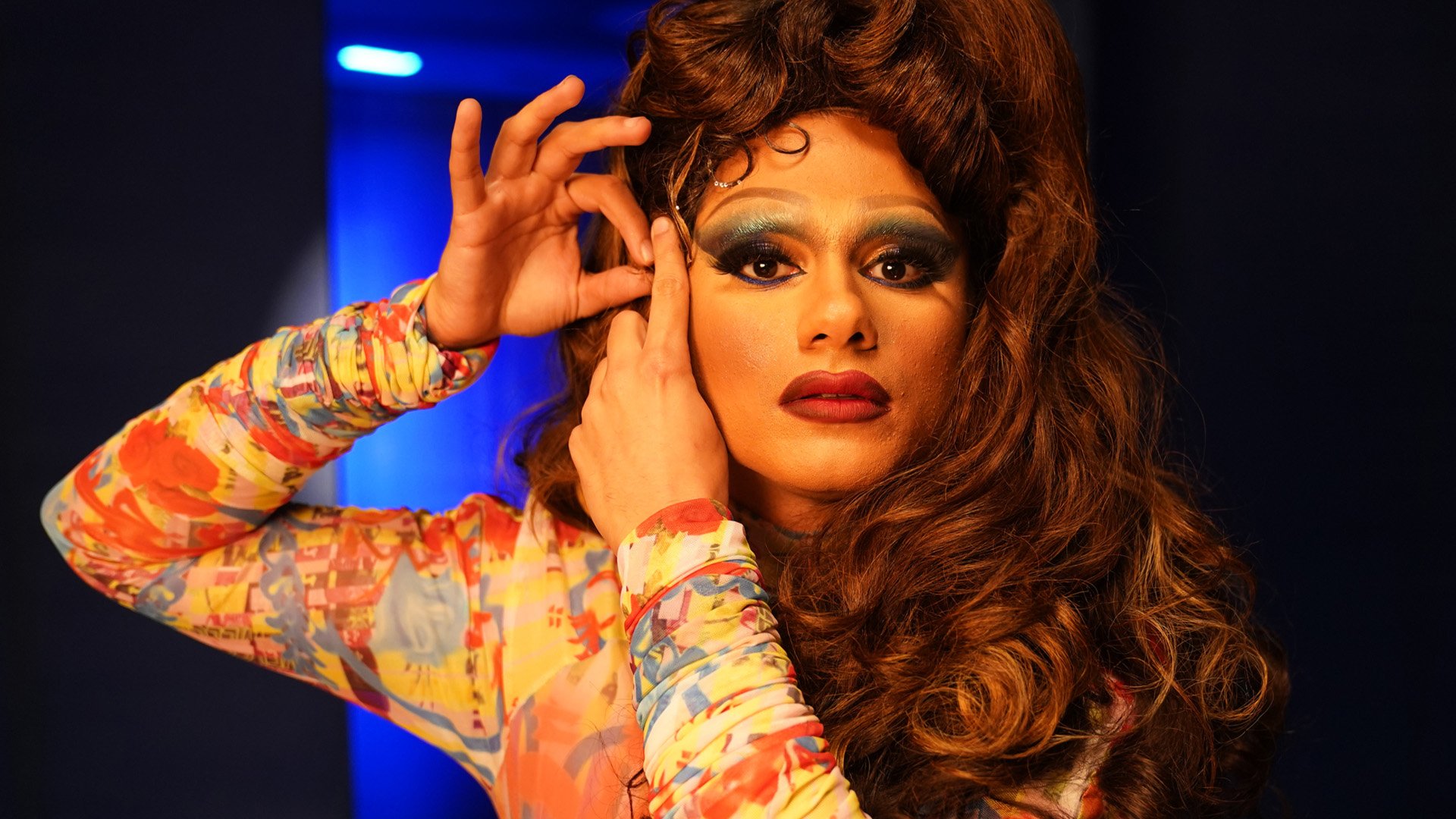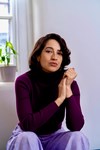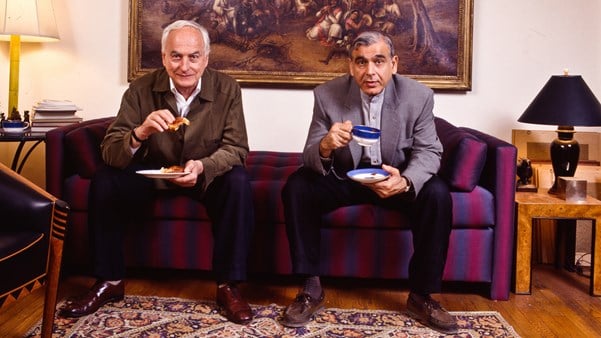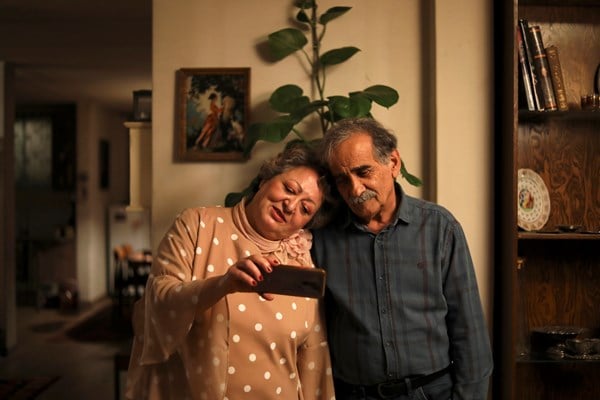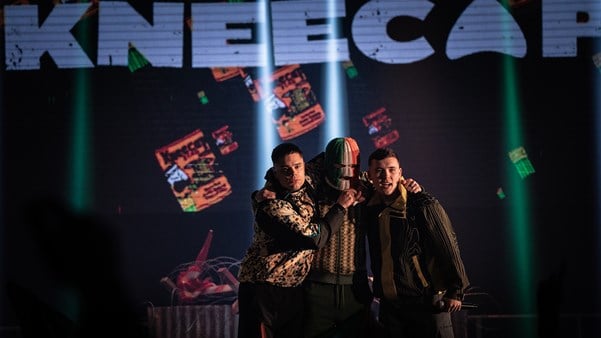Writer-director Amrou Al-Kadhi talks to Hanna Flint about their debut film Layla, and what it represents.

Amrou Al-Kadhi is something of a paradox. As a queer, non-binary actor, drag performer, writer and director, of British-Arab heritage, they tick a lot of boxes. Yet they refuse to be boxed in by any sort of social, political or artistic classification. Layla, Al-Kadhi's feature directorial debut, is emblematic of that fluid perspective; it follows a drag queen transcending categorisation as they look for love and self-acceptance against a ‘fairytale’ backdrop of London.
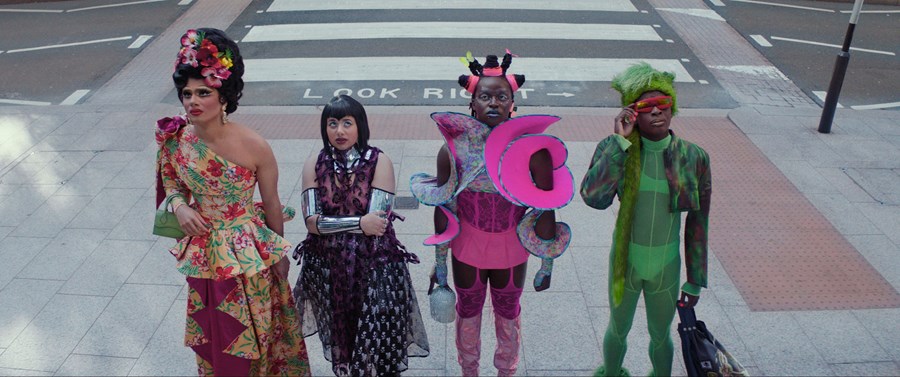
Layla (2024)
‘Drag queens have a tradition of blending queer culture and mass culture,’ Al-Kadhi explains about their kaleidoscopic approach to writing and directing that is very much informed by their drag artistry. ‘It's this camp oscillation between high and low, high production value and DIY, silliness and seriousness.’
Layla, played with beautiful depth, charm and earnestness by Palestinian-Pakistani actor Bilal Hasna, is a person who code-switches frequently, says Al-Kadhi, ‘a character who changes identities, changes their personality and so does the film.’ From a corporate office party to an underground drag club, a love interest's bland apartment to their own colourful boudoir, the production and costume design captures the intersectionality of the spaces Layla occupies in a rose-tinted view of London.
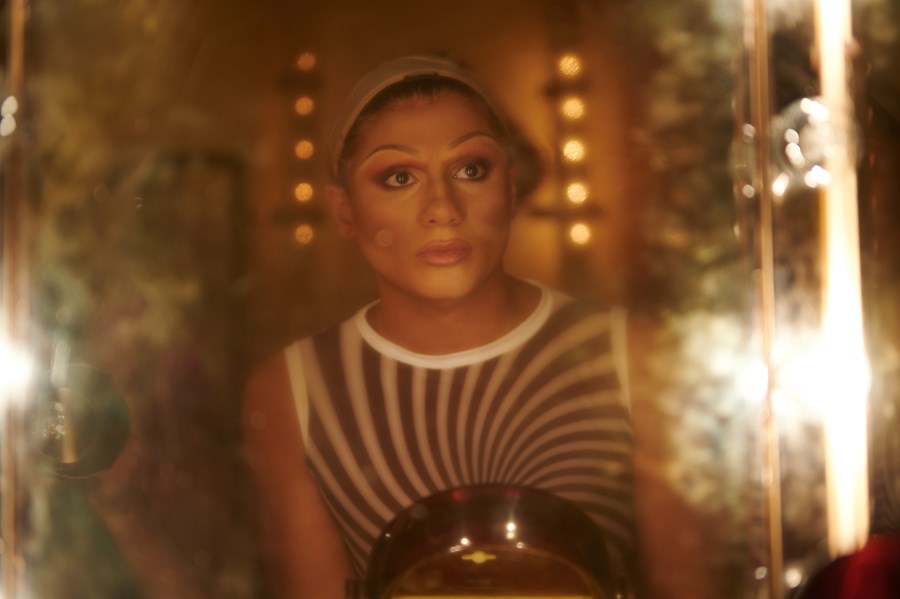
Layla (2024)
Tonally, the story straddles the line between comedy and drama, flavoured by queer cinema, art house, the melodrama of Arab soap operas and British romantic comedy classics. ‘It's a little bit like 120 Beats Per Minute meets a Richard Curtis film,’ Al-Kadhi says. ‘It's got an element of Bridget Jones in it but then it's got the rawness of doing something queer.’
‘You can definitely see Egyptian TV coming through in the emotion and sense of camp,’ they add. ‘In this country, we have a habit of siloing films – a drama should be a gritty drama, a comedy should just be, laugh, laugh, laugh – there's a bit of purism sometimes, but maybe I'm an outsider.’
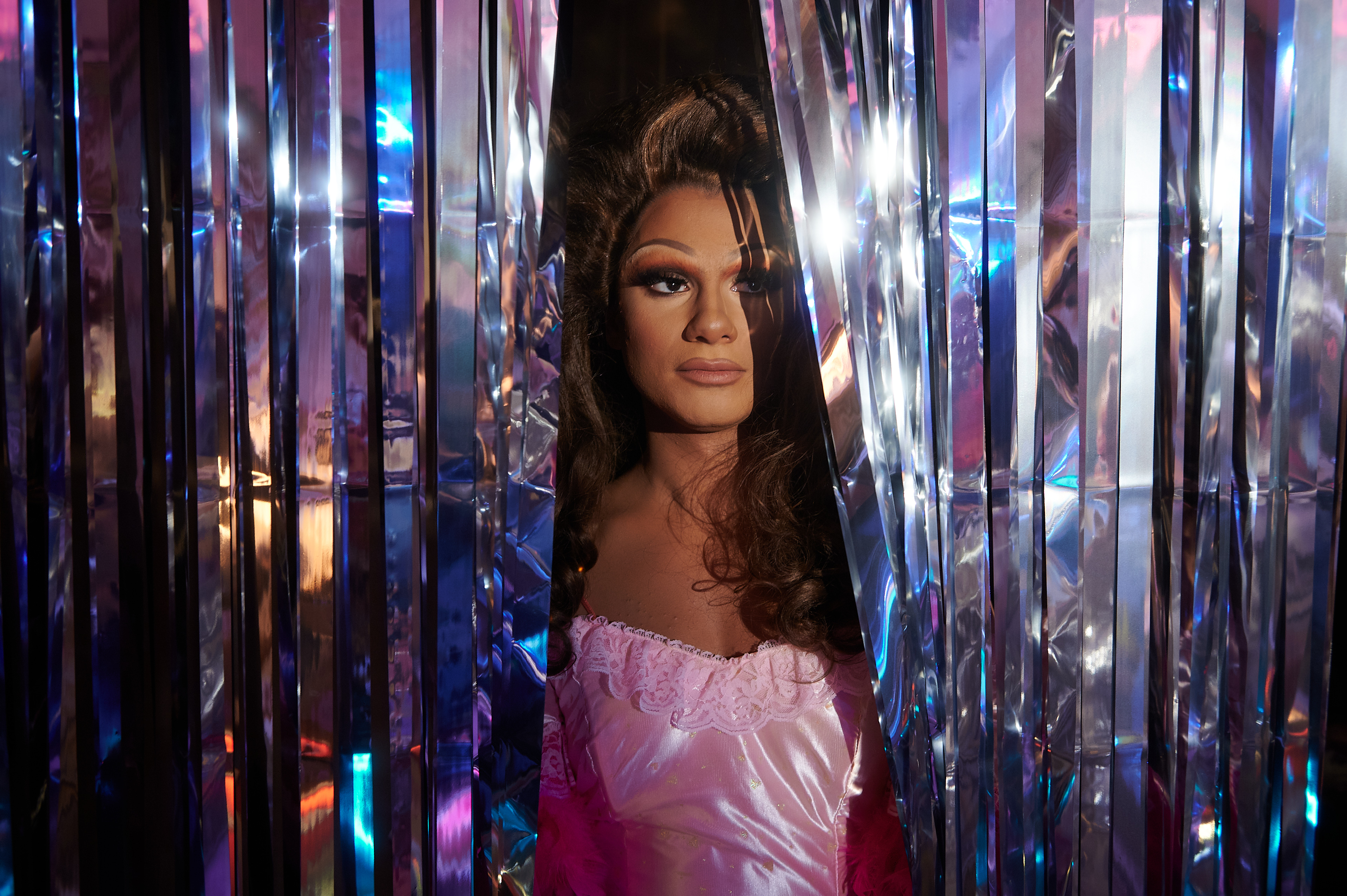
Al-Kadhi is certainly an outlier when it comes to Arab representation in British cinema. So often, Arab storylines are wrapped up in conservative upbringings, traumatic displacement or terrorism plotlines but Layla provides a gorgeous, heartwarming antidote to those flattening stereotypes. ‘The Western lens on both Arab identity and queer identity helps Western arguments that there are no queer brown or black people, therefore it's a justification to keep bombing those countries,’ says Al-Kadhi, who was born in London to an Iraqi Muslim family. ‘The representations of both sexuality and Arab identity are really binary, so in representing queer Arabs, I wanted to show that they exist and that it's an intersection with a lot of abundance. But, obviously, I don't want to hide away from the realities of that experience.’
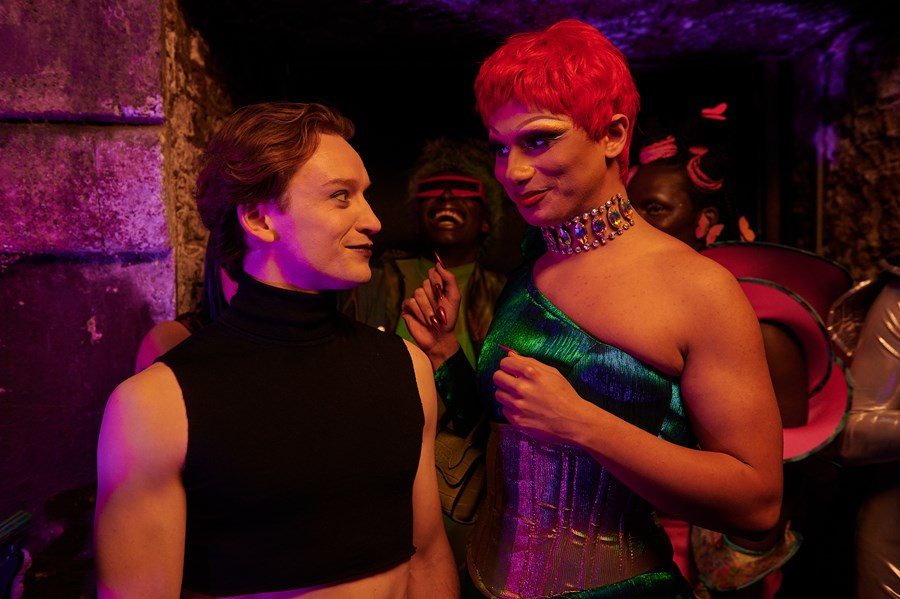
Layla (2025)
Layla offers a complex protagonist whose internalised racism is more of a threat than external microaggressions and assumptions by well-meaning white liberals; a nuanced performer whose contemporary drag persona can sing in harmony with the mystical Sufi tradition of their ancestors; and a flawed hero who learns that they deserve to be loved for all of who they are. ‘It's a portrait of a life I wish I'd had,’ says Al-Kadhi. ‘It's a coming of age where there's no real homophobia, there's a beautiful love story and there's a great friendship group. Everyone's wearing what they want, everyone's living where they want – Layla is a gift to my younger self.’ And a gift to audiences everywhere.
LAYLA IS IN CINEMAS FROM FRIDAY
